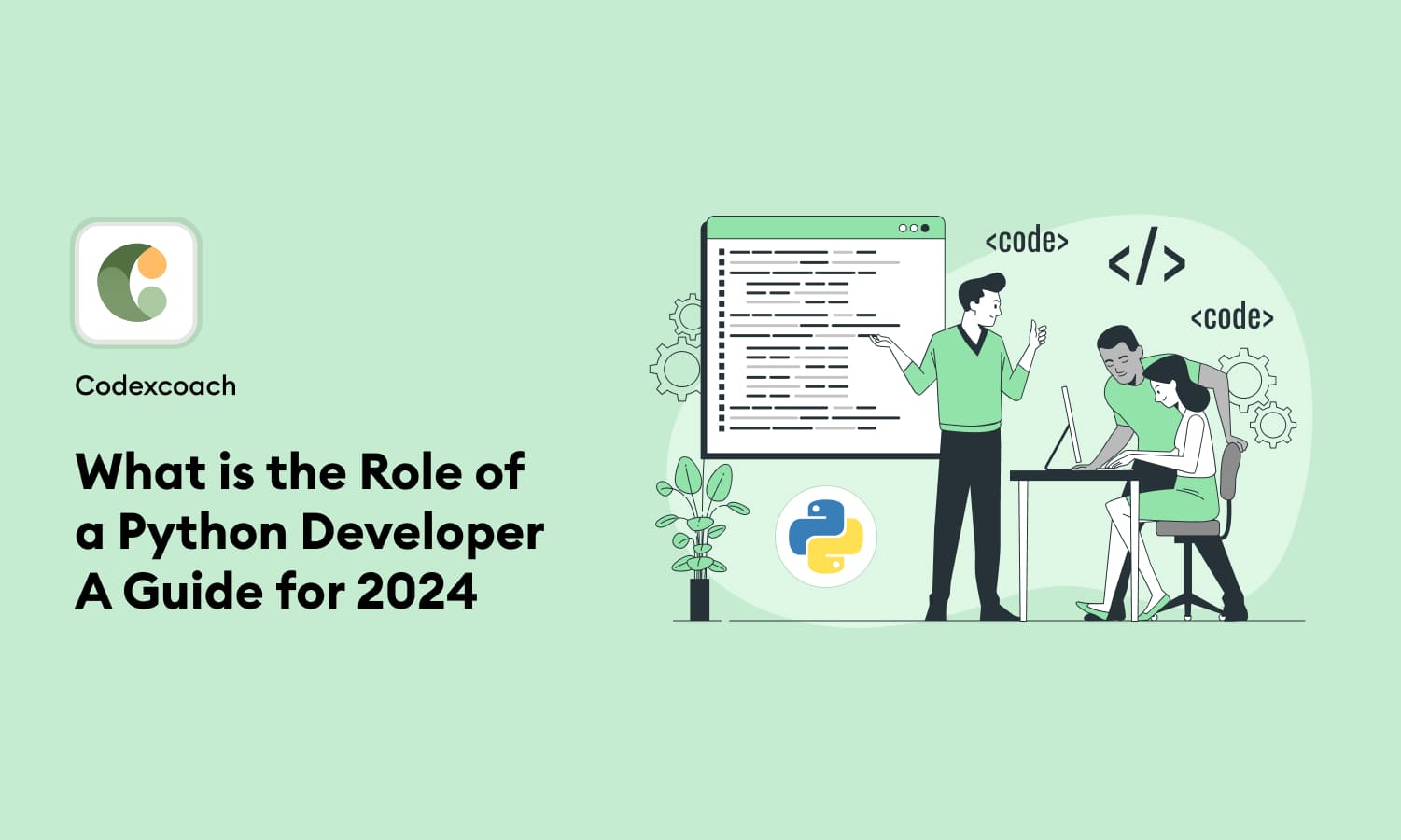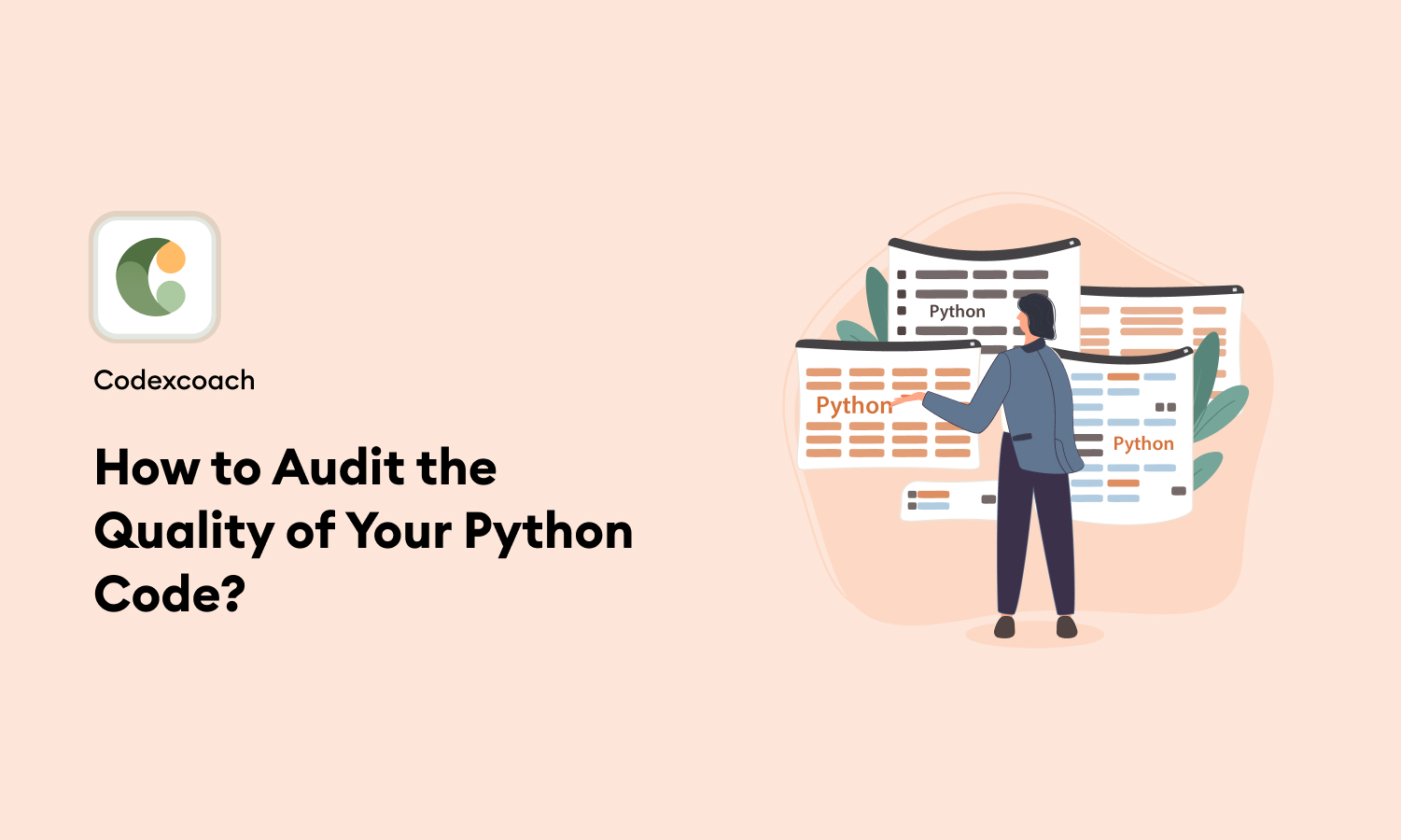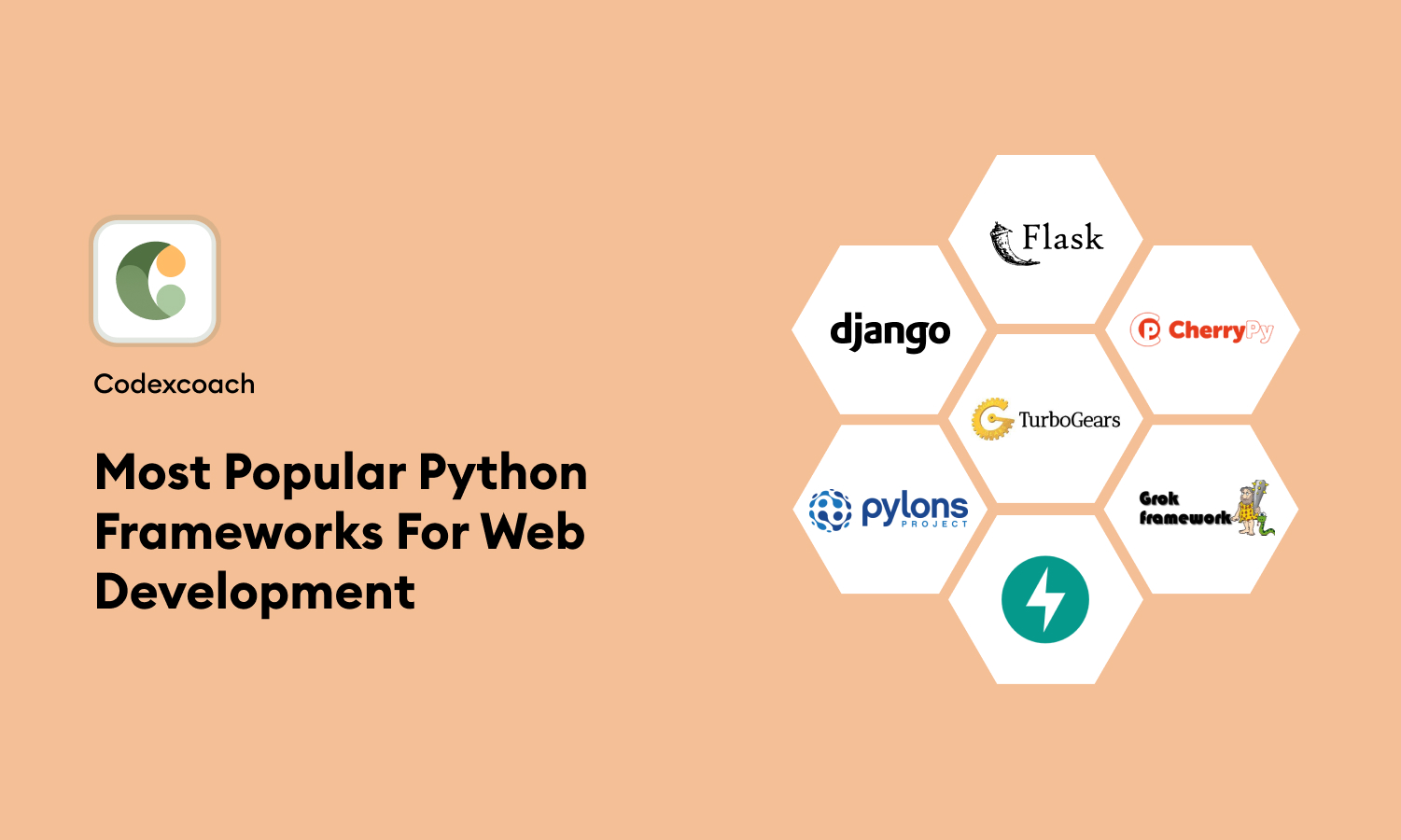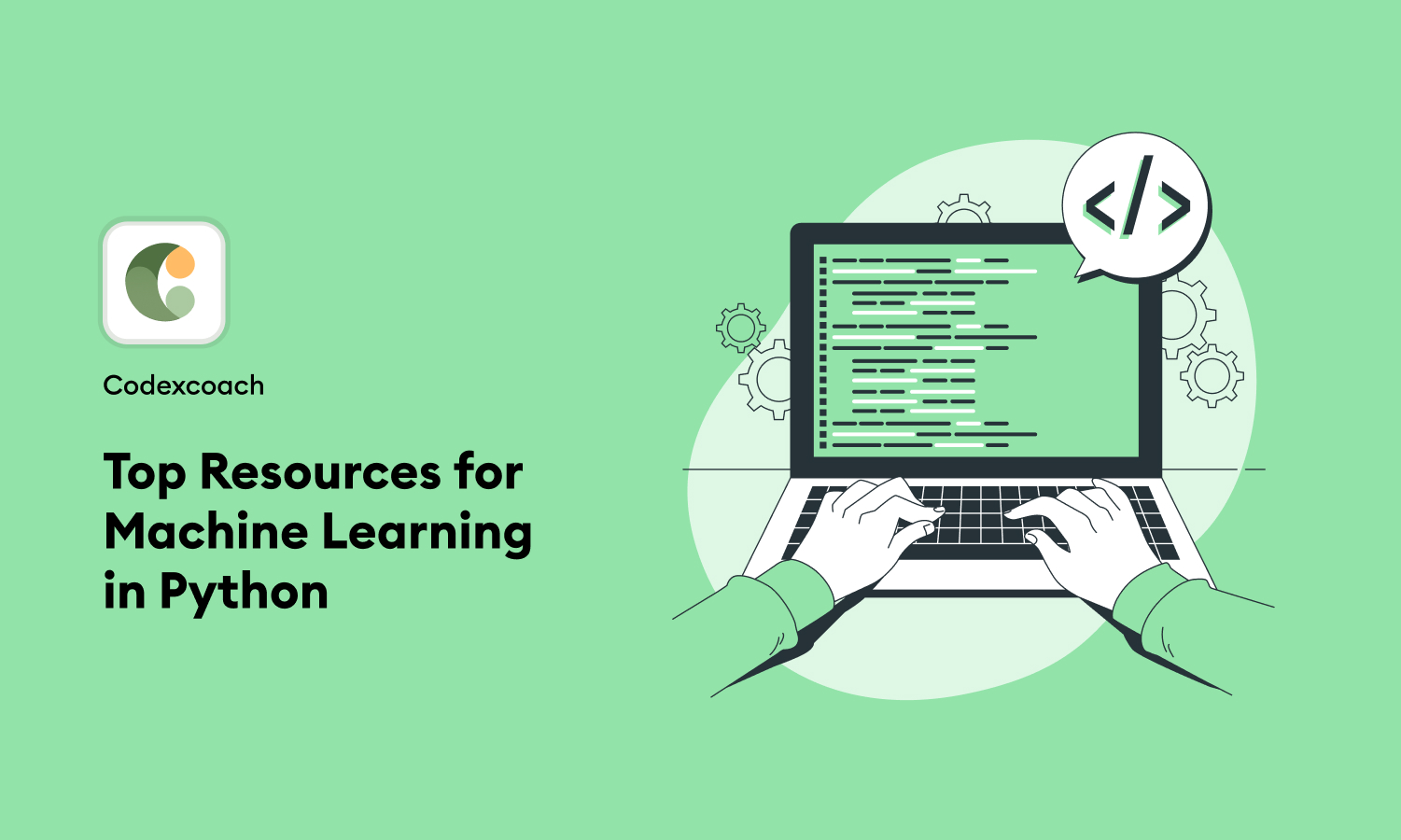Introduction of Python Developer
A Python developer specializes in using the Python programming language to develop, implement, and debug project applications. They often work on web development, data analysis, artificial intelligence, and automation tasks. Their role includes writing efficient, reusable code, integrating data storage solutions, and improving system functionality to meet project requirements.
What is Python?
Python is a high-level, interpreted programming language known for its simplicity and readability, making it ideal for beginners and professionals alike. Developed by Guido van Rossum and released in 1991, It’s widely used for web development, data analysis, artificial intelligence, scientific computing, and automation.
Python’s extensive standard library, along with its vast ecosystem of third-party packages, enables developers to implement complex applications with fewer lines of code compared to other languages. Its strong community support and ongoing development ensure Python remains a versatile and popular choice in the technology industry.
Why is Python so Popular?
Python’s popularity stems from its simplicity and readability, which lower the learning curve for beginners while ensuring that seasoned developers can maintain productivity. Its syntax closely mirrors human language, making it intuitive to learn and use. Python developer supports multiple programming paradigms, including object-oriented, procedural, and functional programming, offering flexibility in solving various problems.
Know more: How to Audit the Quality of Your Python Code?
The extensive standard library and a vast ecosystem of third-party packages allow for rapid development across fields like web development, data science, artificial intelligence, and automation. Additionally, the strong, active community contributes to a wealth of resources, tutorials, and frameworks, further facilitating development and innovation. This combination of features makes Python an incredibly versatile and widely adopted language.
What is a Python Developer?
A Python developer is a software engineer specializing in coding, designing, and deploying applications using the Python programming language. They possess a broad skill set that encompasses writing clean and efficient code, debugging applications, and integrating systems. Python developers often engage in developing web applications, data analysis, artificial intelligence solutions, and automation scripts.
Their roles can vary widely, from back-end development to data science projects. They leverage Python’s extensive libraries and frameworks, such as Django and Flask for web development or Pandas and TensorFlow for data science and machine learning. Python developers are critical in translating project requirements into functional, scalable, and efficient software solutions across various industries.
Roles and Responsibilities of a Python Developer
- Writing Clean, Efficient Code: Creating software applications and scripts using Python, adhering to best practices in coding standards.
- Debugging and Testing: Identifying and fixing bugs in existing projects, ensuring robust, error-free applications through comprehensive testing.
- Data Analysis and Visualization: Manipulating data sets and creating visual representations to make data-driven decisions using libraries like Pandas and Matplotlib.
- Developing Web Applications: Utilizing frameworks like Django and Flask to design and implement web applications, including handling the backend and integrating frontend technologies.
- Integration of Data Storage Solutions: Working with databases and data storage technologies to store, retrieve, and manipulate data efficiently.
- Automation: Creating scripts to automate repetitive tasks, improving efficiency and reducing manual effort.
- API Development and Integration: Developing APIs for applications to interact with other software applications or third-party services.
- Improving Application Performance: Optimizing existing applications for better performance and scalability.
- Staying Updated with Technologies: Keeping abreast of new and emerging technologies in the Python ecosystem and beyond to improve application development and deployment.
- Collaboration: Working closely with other developers, UX/UI designers, and stakeholders to meet project goals and ensure the software meets all requirements.
Skills Required to Become a Python Developer
Becoming a proficient Python developer requires a mix of technical knowledge, practical skills, and soft skills. Here are essential skills for those aspiring to excel in this role:
Technical Skills
- Proficiency in Python: Deep understanding of Python syntax, data structures, and language constructs.
- Framework Knowledge: Familiarity with Python frameworks like Django, Flask for web development, and others like Pandas, NumPy for data science.
- Front-end Technologies: Basic knowledge of front-end technologies (HTML, CSS, JavaScript) for web development projects.
- Database Management: Skills in database management and understanding SQL and NoSQL databases such as PostgreSQL, MySQL, MongoDB.
- Version Control: Experience with version control systems, especially Git, to manage and collaborate on codebases.
- RESTful Services and APIs: Understanding of developing and consuming RESTful services and APIs.
- Testing: Knowledge of testing tools and methodologies (unit testing, integration testing) to ensure code quality and reliability.
- Debugging Skills: Ability to identify bugs and performance bottlenecks and implement solutions.
Soft Skills
- Problem-Solving: Strong analytical and problem-solving skills to navigate challenges during development.
- Communication: Clear communication skills to collaborate with team members and stakeholders effectively.
- Time Management: Ability to manage time efficiently, prioritize tasks, and meet project deadlines.
- Adaptability: Willingness to learn new technologies and adapt to changing project requirements.
- Attention to Detail: Precision and attention to detail to write clean, efficient, and error-free code.
Additional Skills
- Machine Learning and AI: Knowledge of machine learning algorithms and artificial intelligence can be beneficial for specialized roles.
- Cloud Services: Familiarity with cloud services (AWS, Google Cloud Platform, Azure) for deploying applications and managing cloud resources.
- Continuous Integration/Continuous Deployment (CI/CD): Understanding CI/CD principles for automating testing and deployment processes.
- Security: Awareness of security best practices and principles to develop secure applications.
Combining these skills can position an individual as a strong candidate for Python development roles across various industries and project types.
Jobs in Python
Python’s versatility and widespread adoption across industries have led to a diverse range of job opportunities for individuals skilled in this language. Here are some prominent job roles tailored to Python expertise:
1. Python Developer
- Description: Primarily focused on developing server-side logic, platform integration, and adding functionalities to applications using Python Developer.
- Industries: Tech, finance, healthcare, media, and more.
2. Web Developer (Python)
- Description: Specializes in building the backend of web applications using Python frameworks like Django and Flask.
- Industries: E-commerce, startups, digital agencies.
3. Data Analyst
- Description: Utilizes Python to analyze data sets for actionable insights, using libraries such as Pandas, NumPy, and Matplotlib.
- Industries: Finance, marketing, healthcare, research.
4. Data Scientist
- Description: Applies Python in machine learning, predictive modeling, and statistical analysis to solve complex data problems.
- Industries: Tech, finance, e-commerce, healthcare.
5. Machine Learning Engineer
- Description: Focuses on developing algorithms and predictive models to make data-driven decisions using Python libraries like TensorFlow and Scikit-learn.
- Industries: Tech, automotive, finance, healthcare.
6. DevOps Engineer
- Description: Uses Python scripts for automation, configuration management, and CI/CD pipelines to streamline software development and deployment processes.
- Industries: Tech, finance, retail.
7. Automation Test Engineer
- Description: Designs and writes automated tests in Python to ensure the reliability and performance of software applications.
- Industries: Tech, gaming, software development firms.
8. Software Engineer
- Description: Apart from Python, possesses a broader software development skill set to build complex applications, systems, and services.
- Industries: Almost every industry that relies on software development.
Conclusion
Embarking on a journey as a Python developer opens a world of opportunities across various domains, from web development and data analysis to artificial intelligence and beyond. Python’s widespread popularity, coupled with its simplicity and versatility, makes it a powerful tool in the hands of those who master it. Whether you’re just starting out or looking to deepen your expertise, the Python community is vibrant, supportive, and continuously evolving, offering endless resources for learning and growth.





